Why is my string of pearls shriveling? Here are the common causes, plus expert tips on how to revive this trailing houseplant
This succulent is prone to shriveling, but it's nothing to panic about as it can easily be fixed
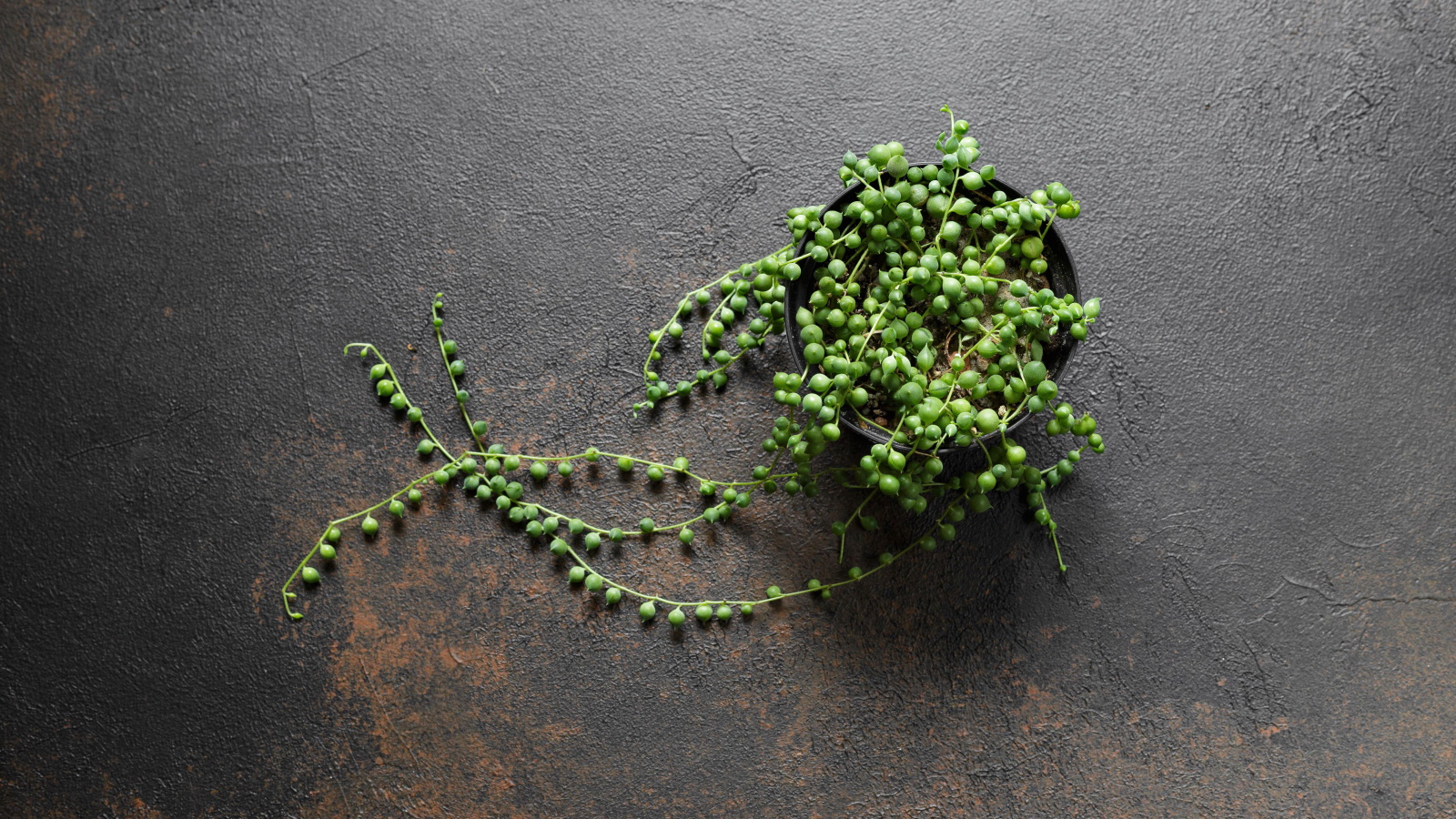

Trailing houseplants are some of the most elegant indoor plants to decorate your home with. They add green texture to your interiors and guide eyes down your carefully curated bookshelf, or even act as a focal point in their own right.
I think string of pearls is a classic among the best indoor hanging plants. They're loved for their charming strands of gem-sized leaves, and it's one of those houseplants that will keep growing and growing. However, that doesn't mean you can just sit back and neglect it because not staying on top of your string of pearls care can cause problems for its appearance. You might find that your string of pearls stops growing and even shrivels up.
If your string of pearls leaves look dry, wrinkly and the leaves have become a lot smaller, it's a sign that something isn't quite right. But don't fret, there's a logical explanation as to why your string of pearls is shriveling and there are easy solutions to revive it once again. I've compiled everything you need to know about string of pearls shriveling and what you can do to bring it back to health.
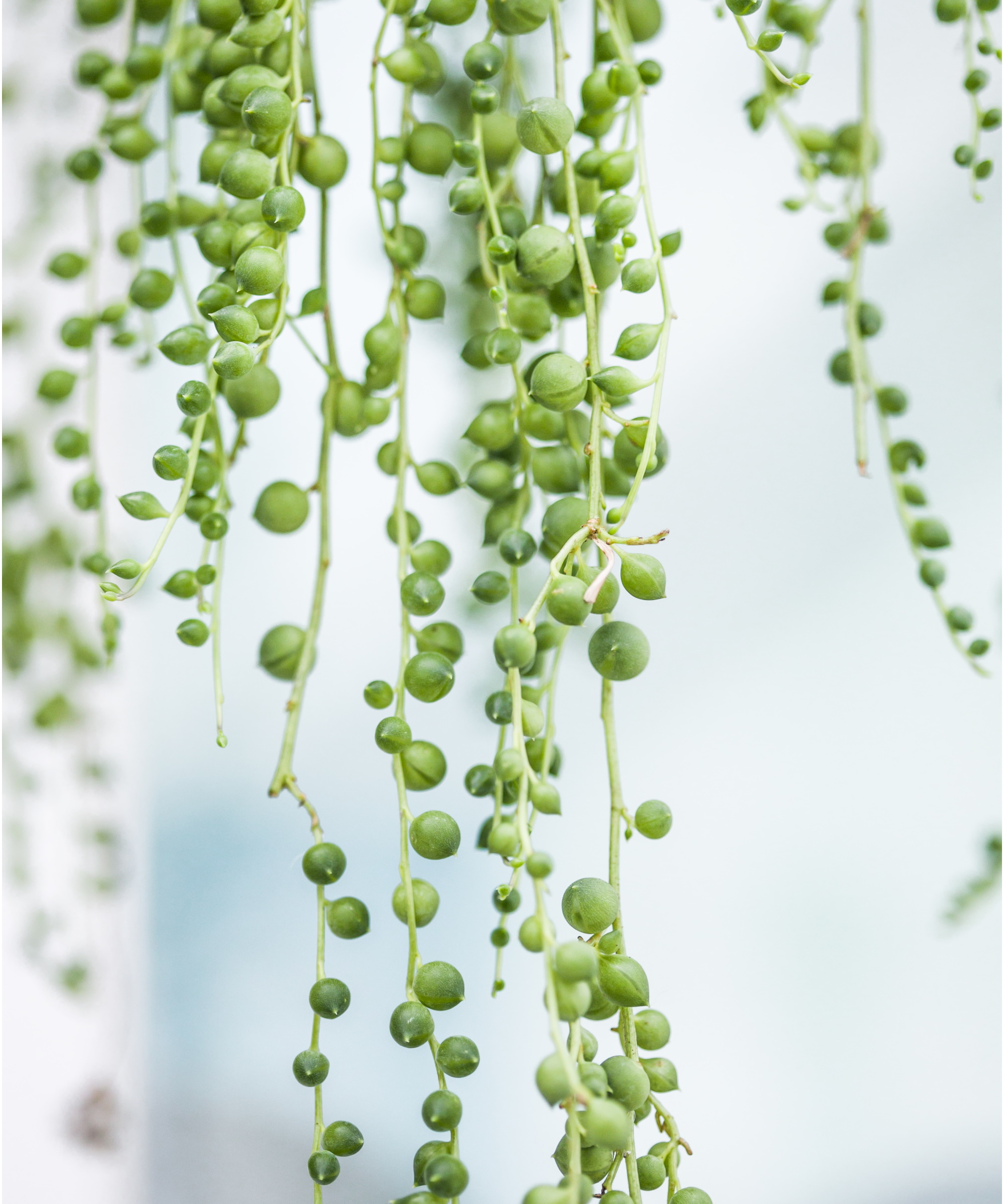
String of pearls shriveling from underwatering
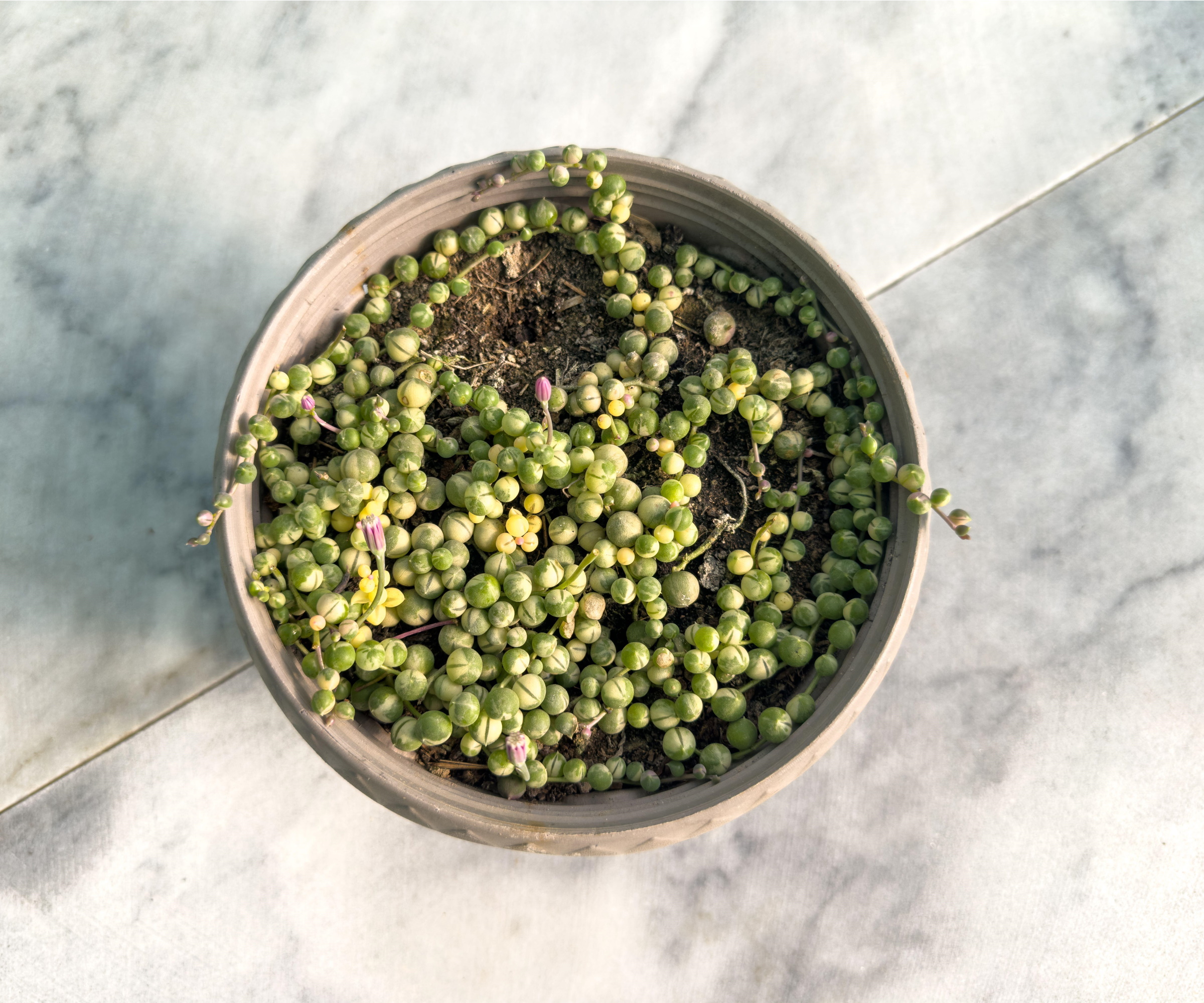
The most common cause of string of pearls shriveling is not providing this plant with sufficient water. String of pearls plants are native to the dry areas of southwest Africa, where they retain their water well. However, this doesn't mean they can be left to dry out entirely.
'When the plant doesn’t receive enough water, its cells lack the necessary moisture to maintain pressure in their cell walls, causing them to become soft and flattened,' explains Nastya Vasylchyshyna, plant expert at Plantum.
Not watering your houseplants correctly is one of the most common indoor plant mistakes that kills off many indoor plants, and I've certainly been guilty of previously over and under-watering my plants. That's why it's important to do some research into the water requirements of your specific plants.
'To check if your plant needs water, use your finger or a wooden stick to gauge the soil moisture. If the substrate is dry by about an inch or more, the plant is likely lacking moisture. In this case, give it a generous drink,' Nastya suggests.
Ever since I started using this moisture meter from Amazon, knowing when to water plants has been so easy. A tool like this helps you to identify how dry your potting mix is, so that you don't go too long without watering your plant and likewise don't overwater it.
Design expertise in your inbox – from inspiring decorating ideas and beautiful celebrity homes to practical gardening advice and shopping round-ups.

Nastya is a professional botany expert for the Plantum app that helps identify plants and plant diseases and provides care recommendations. Her specialization is plant morphology, phytopathology, and plant physiology.
String of pearls shriveling from too much sunlight
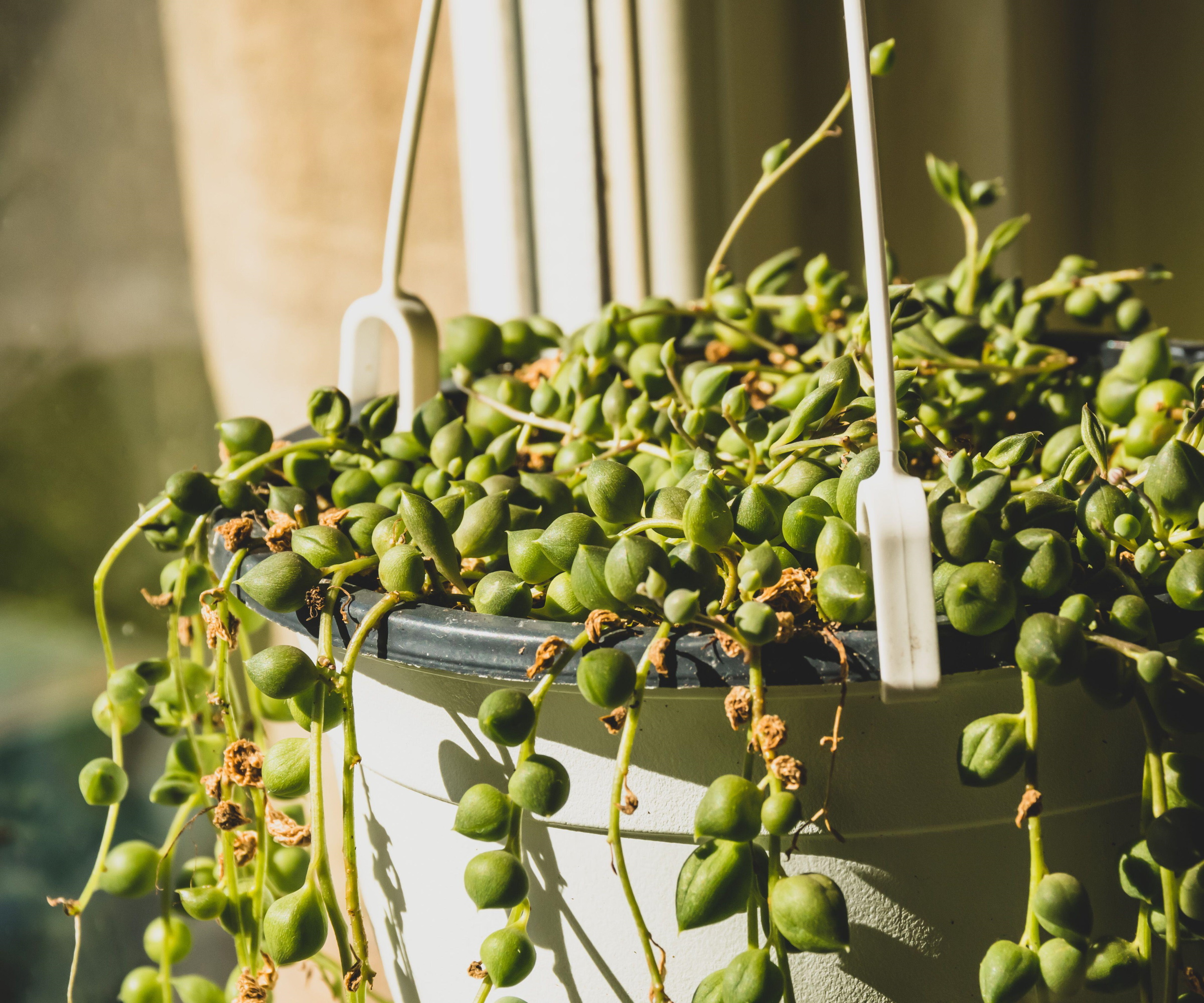
If you're keeping on top of your watering regime for your string of pearls but it still appears shriveled, lighting might be the issue. Not all plants can cope with all light levels, which is why you get some low light indoor plants and some indoor plants that like direct sun. Just like water levels, it's all about understanding the optimal lighting position for your specific plants.
'Too much direct sun can also cause shriveling and drying, as well as pale spots on the leaves,' says Nastya. 'While the string of pearls enjoys sunlight, intense afternoon sun, especially during summer, can scorch the plant.'
The perfect spot for your string of pearls is in an east or west-facing window. 'If you prefer to put it on a south-facing windowsill, shield the plant with blinds or semi-transparent, light-colored gauze,' suggests Nastya. 'There's no need to shield the succulent during winter or cloudy weather.'
Try using these sheer curtains from Wayfair to protect your string of pearls from direct sunlight while still allowing plenty of bright light into your home.
How to revive a shriveled string of pearls
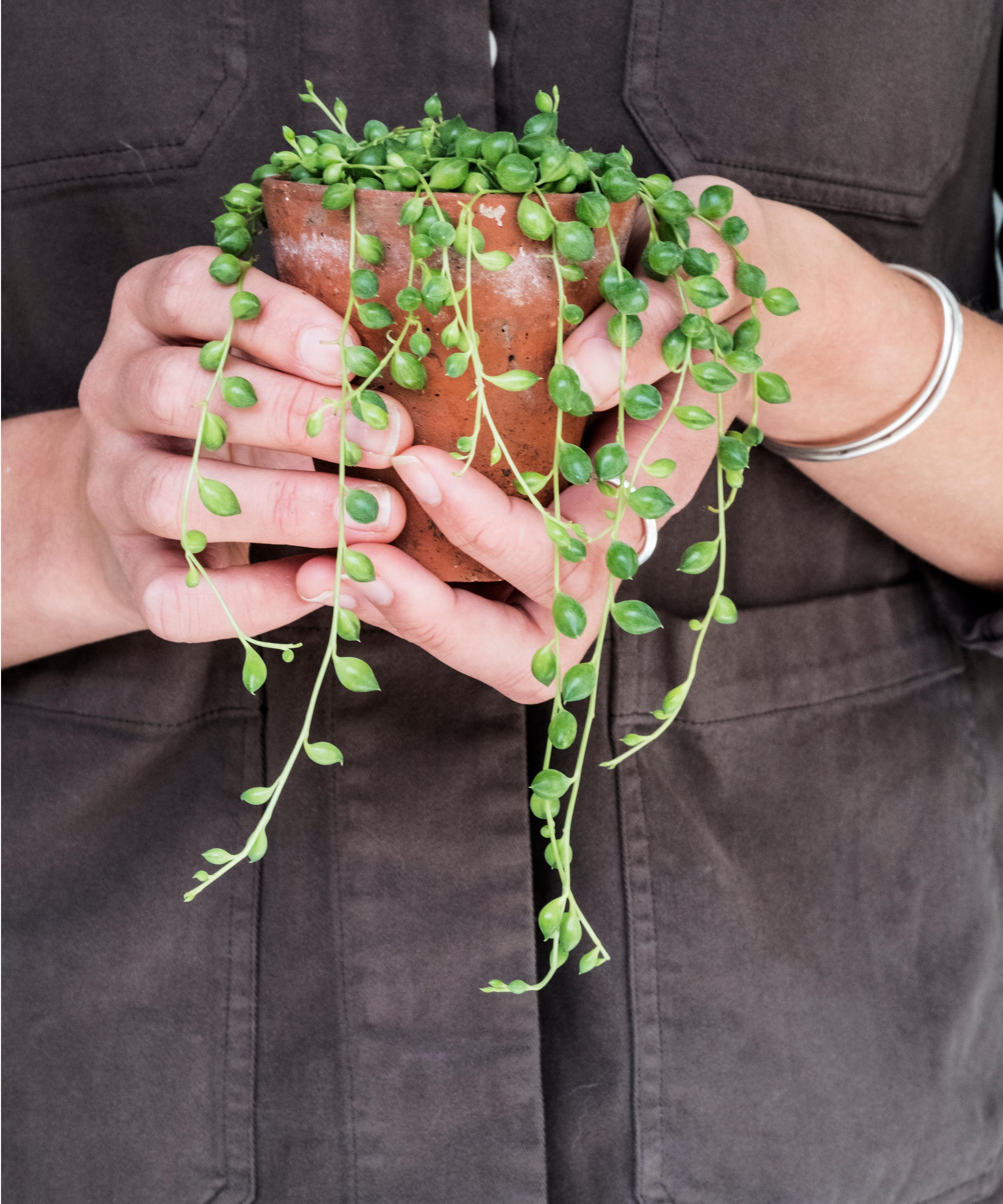
There's no need to panic if your string of pearls has become shriveled because it's possible to revive it. Of course, this includes ensuring you're providing the best growing conditions and correcting any water and lighting issues.
'If the plant is suffering from a lack of moisture, give it an abundant drink, and it’ll get better within a couple of days,' says Nastya. 'Shriveling is a natural response that signals that the plant needs water, helping you avoid overwatering.'
Likewise, you should move your string of pearls away from any particularly sunny spots if it is suffering from too much exposure to the sun.
'Sun scorch, indicated by whitish spots that become hard and dry over time, generally doesn’t harm the plant. However, if you prefer a neater appearance, you can gently pinch off the damaged parts with your fingers,' suggests Nastya.
The good news is that shriveling won't permanently harm the health of your string of pearls. As long as you quickly make the right adjustments, they'll bounce back and continue growing, which is why I think they're one of the best fast-growing succulents.
FAQs
Should I cut off shriveled string of pearls strands?
There's no need to prune away any string of pearls strands that have shriveled up. Shriveling is the plant's response to a lack of water or too much sunlight and simply adjusting these conditions will see it quickly return to health.
'You should only prune if the shoot continues to wilt, develop pale spots, and the leaves become dry and fragile, indicating that the branch is dying,' says Nastya Vasylchyshyna, plant expert at Plantum.
If you do need to prune your string of pearls, make sure to use essential gardening tools like pruners to make sharp cuts and clean your gardening tools after use to prevent the spread of pests and diseases.
Don't be too hasty to throw out your string of pearls if it starts to shrivel - it's easy to revive it and get your plant looking healthy again. Just take care to keep on top of optimal care going forward to prevent your plant shriveling again.
If you want more string of pearls plants in your home, try propagating string of pearls. It's one of the easiest houseplants to grow from cuttings, meaning can grow more of these beautiful plants for free.

Tenielle is a Gardens Content Editor at Homes & Gardens. She holds a qualification in MA Magazine Journalism and has over six years of journalistic experience. Before coming to Homes & Gardens, Tenielle was in the editorial department at the Royal Horticultural Society and worked on The Garden magazine. As our in-house houseplant expert, Tenielle writes on a range of solutions to houseplant problems, as well as other 'how to' guides, inspiring garden projects, and the latest gardening news. When she isn't writing, Tenielle can be found propagating her ever-growing collection of indoor plants, helping others overcome common houseplant pests and diseases, volunteering at a local gardening club, and attending gardening workshops, like a composting masterclass.